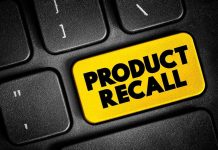
Former President Donald Trump’s recent criticism of the FDA and Big Pharma has left many curious about the future of American healthcare policy.
At a Glance
- Trump proposes policy to limit post-government lobbying to reduce conflicts of interest.
- The pharmaceutical industry exploits Washington’s corruption, leading to high drug prices.
- U.S. drug prices are the highest globally, projected to reach $610 billion by 2021.
- The pharmaceutical lobby spent $283 million on lobbying in 2018.
Trump’s Critique and Policy Proposal
Former President Trump recently lambasted the FDA and major pharmaceutical companies for being inefficient and overly profit-driven. He proposed a policy to prohibit government officials from transitioning directly to lobbying roles immediately after public service. Trump argues this would reduce conflicts of interest and strengthen government integrity.
Trump’s proposal aims to address widespread concerns over regulatory capture and the undue influence of large pharmaceutical companies in shaping public health policies. By limiting the swift move from public office to lobbying, Trump seeks to bolster transparency and integrity within government operations.
Pharmaceutical Industry’s Influence in Washington
The pharmaceutical industry has been profiting from Washington’s corruption, inflating drug prices for American consumers. In 2018, Americans spent $535 billion on prescription drugs, a 50% increase since 2010. This rise in drug prices has placed a significant burden on many Americans, with some even traveling abroad for cheaper medications.
Trump had promised to lower drug prices but found himself criticized for filling his administration with industry insiders like former Eli Lilly president Alex Azar, while taking minimal action against Big Pharma.
JUST IN: Donald Trump calls out the FDA employee to Big Pharma lobbyist pipeline, says anyone who goes into government should be banned from ever being a lobbyist.
Trump's comments came during an interview with Theo Von where he called for the end of Big Pharma's chokehold on… pic.twitter.com/JGiVv8eh93
— Collin Rugg (@CollinRugg) August 20, 2024
Big Pharma’s High Profits and Lobbying Power
Despite taxpayer subsidies, drug prices continued to rise, with over 3,400 drugs experiencing price increases in 2019. NIH funding significantly contributed to the research behind 210 new drugs approved by the FDA from 2010 to 2016. The pharmaceutical industry also spends significantly on lobbying; in 2018 alone, it committed $283 million.
The profits and high salaries within Big Pharma only add fuel to the fire. CEOs of major pharmaceutical companies earned $90 million in 2018, drawing criticism for prioritizing shareholder rewards over public health concerns.
The Los Angeles Times reports that, “Since the 1930s, the National Institutes of Health has invested close to $900 billion in the basic and applied research that formed both the pharmaceutical and biotechnology sectors.”
The pharmaceutical lobby’s grip on Washington is formidable. For instance, legislation that could enable Medicare to negotiate drug prices remains elusive due to lobbying efforts. Additionally, Trump’s administration’s tax bill allowed pharmaceutical companies to save billions, enabling stock buybacks rather than lowering drug prices.
New FDA Rules make it more difficult for them to speed up vaccines for approval before Election Day. Just another political hit job! @SteveFDA
— Donald J. Trump (@realDonaldTrump) October 7, 2020
Impact and Future Considerations
High drug costs lead to significant medical debt and difficult choices for many Americans, including rationing lifesaving medications like insulin. This environment underscores the need for robust policies to rein in drug prices and ensure that public health remains a priority over corporate profit.
Despite bipartisan agreement on the necessity to tackle high drug prices, costs have continued to rise. Trump’s proposed policy shift is a step towards disrupting the pharmaceutical industry’s influence in Washington and establishing more equitable health policies for all Americans.
In conclusion, addressing the pharmaceutical industry’s sway over Washington will be crucial in decreasing drug prices and increasing healthcare fairness. Whether Trump’s proposed policy gains traction or not, it signals a significant dialogue shift towards confronting Big Pharma’s lobbying might and profit motives.
Sources
- How Big Pharma Reaps Profits While Hurting Everyday Americans
- President Trump’s prescription to reduce drug prices: from the campaign trail to American Patients First
- Big Pharma still largest lobbying spender as Biden signs crackdown executive order, House seeks to pass bill lowering drug prices
- Opinion: Trump Said He’d Battle Big Pharma. Instead, He Let It Run The White House.
- Trump Then: ‘I Would Have No Problem’ Banning Lobbyists. Trump Now: You’re Hired!
- As Trump Prepares Plan to Lower Drug Prices, Big Pharma Girds for a Fight
- How Big Pharma Was Captured by the One Percent
- Trump advisor Peter Navarro slams Big Pharma’s lobbying against possible ‘Buy America’ executive order
- Tracking Trump’s Corporate Cronies
- How big pharma’s money – and its politicians – feed the US opioid crisis













